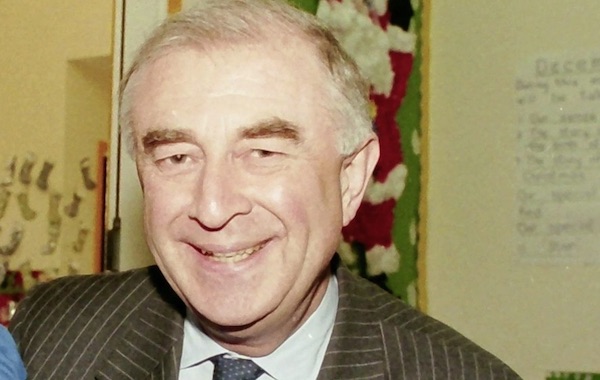
State papers from the 1990s have shown that the British government’s Northern Ireland Office sought to suppress and counteract the increasingly effective use of the media by republicans, including the world wide web emerging at the time.
A perceived threat to the British state from a Sinn Féin website was raised by a British Home Officer Minister in a letter to John Wheeler, the Security Minister for the North. Wheeler was told in March 1996 that the “time for control (of the internet) is fast approaching”.
One document published online had highlighted the extent of the Crown Force infrastructure at the border, including British Army and RUC bases and checkpoints, as well as Navy and RAF installations.
The Minister of State at the Home Office David Maclean, in a letter to Wheeler on March 12, 1996, warned of the “very professionally produced pages, apparently showing our complete deployment in NI”.
The documents spoke of “mastery of the internet” by republicans and the need for countermeasures and “counter-propaganda”.
Maclean wrote, enclosing printouts from the website, “If you click on the clickable map... you will get good coloured details of all British forces in the various towns as well as helicopter bases.”
All the websites in question were based in the US. Maclean wondered whether, since the internet already had nine million American users who could access the information, the British government should take action.
Wheeler replied expressing his “horror” and vowing to deal with it. A subsequent meeting of his security group on April 3, 1996 at Stormont Castle saw the securocrats bemoan the fact that republican news articles could be read online and the high quality of Sinn Féin’s “entry” on the internet.
“It’s entry was impressive and its presentation was good in content and style,” they noted.
Rather than attempt to shut down the internet, the meeting decided that the British government should use it as “a pro-active PR vehicle” and put “our own counter-propaganda on the net” using material provided by the British Army and the RUC police.
BROADCAST BAN ‘NOT WORKING’
Declassified files from November 1993 also show that a British official argued that the broadcasting ban on republicans was only serving to boost their support.
The broadcasting ban, introduced in Britain in 1988, meant that instead of hearing Gerry Adams’ voice, television viewers and radio listeners would hear an actor’s voice reading a transcript of the Sinn Féin leader’s words. It was the subject of international political condemnation and comedians’ jokes.
Concerns were raised that broadcasters were using lip-synching techniques and professional actors to give “a very realistic impression” of Mr Adams’ voice.
According to the files, the NIO official said the ban had not damaged republicans at the ballot box and had been “exploited” by Sinn Féin.
He said the realistic dubbing of voices had made “a mockery of the restrictions”.
He added that “so long as the broadcasters dubbed ineptly or the Irish accents were unconvincing, they acted within the terms of the restrictions, but now that their techniques (and actors) had improved, the restrictions were being flouted”.
They also complained that the ban prevented “any real opportunity for Sinn Féin to be questioned particularly about issues which might embarrass them... nationalists take the view that the ban reflects primarily a GB political imperative and a concession to Unionist complaints on security matters. I strongly share that view.”
The official said the government should consider ending the ban, although not immediately.
The Dublin government lifted its parallel ‘Section 31’ censorship restrictions in January 1994, while Britain’s use of dubbed voice-overs ended in Britain in September 1994.
![[Irish Republican News]](https://republican-news.org/graphics/title_gifs/rn.gif)
![[Irish Republican News]](https://republican-news.org/graphics/title_gifs/harp.gif)

